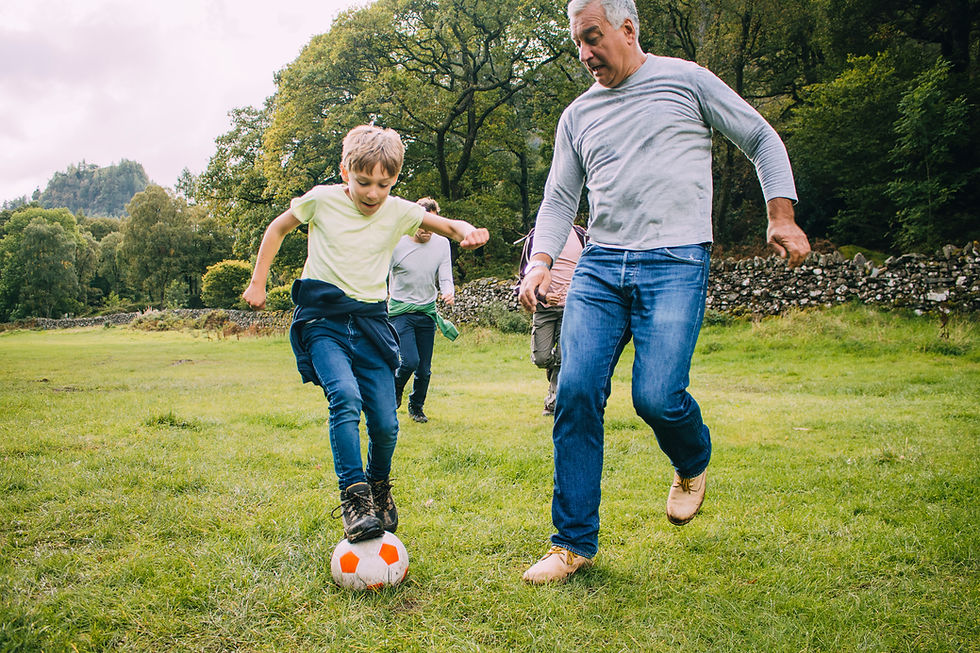New Wine Into New Wineskins: Compassionate Leadership and Purpose in Sports Ministry (Part 2)
- Brandon Crooms

- Dec 24, 2024
- 3 min read
Updated: Apr 12, 2025

35 Jesus went through all the towns and villages, teaching in their synagogues, proclaiming the good news of the kingdom, and healing every disease and sickness. 36 When he saw the crowds, he had compassion on them, because they were harassed and helpless, like sheep without a shepherd. 37 Then he said to his disciples, “The harvest is plentiful but the workers are few. 38 Ask the Lord of the harvest, therefore, to send out workers into his harvest field.”
Mathew 9:35-38 NIV
This is the second installment of my blog series inspired by the How Sports Should Be Used for the Common Good panel at Baylor University’s Symposium on Faith and Culture. Drawing from Matthew 9:35-38, we are reminded of Jesus’ compassion as He tended to the needs of the harassed and helpless, likening them to sheep without a shepherd. His call to send workers into the harvest field underscores the urgent need for servant leaders who are equipped to guide others with purpose and compassion.
When leading athletes, I emphasize the importance of cultivating purpose beyond the boundaries of their sport. Leading with compassion and modeling it for others is essential for inspiring both current and future leaders to adopt this transformative approach. By focusing on holistic development—encompassing the personal, social, professional, and spiritual dimensions of an athlete’s life—we can add value that resonates far beyond their current achievements. Pointing athletes toward their greater purpose invites them to think beyond the immediate and take actions rooted in long-term meaning rather than short-term accolades.
Many fear that servant leadership diminishes authority or respect. On the contrary, adopting a posture of service allows leaders to connect more deeply with the person behind the jersey, addressing identity issues that sports often temporarily mask. True impact comes from compassionate care for the whole individual—mind, body, and spirit—guiding them toward their God-given potential. The competitive nature of sports can obscure this purpose-driven perspective, but it is vital that we, as leaders, open our eyes, hearts, and minds to prioritize the comprehensive growth of the athletes we serve.
A Call for Comprehensive Programs
Sports programs, particularly faith-based ones, have a unique opportunity to address the gaps that often disservice athletes and the youth sports community. A spirit-led approach to holistic development can shine a light on areas of brokenness possibly psychologically, sociologically, culturally, and economically as a means to offer hope and restoration. This kind of intentional care requires wisdom, discernment, and a genuine commitment to the well-being of each athlete.
As the saying goes, “It takes a village to raise a child.” This same principle applies to athletes. A strong, compassionate community built on faith and a shared vision can have an extraordinary impact. Together, we can nurture their well-being and foster environments where athletes can thrive, not only in their sport but also in their purpose-driven lives.
Using Sports for the Common Good
Here are ways faith-based sports programs can serve athletes and communities for the greater good:
Promote Critical Thinking
Challenge harmful paradigms, whether systemic, spiritual, or mental, that stand in opposition to God’s will for people in athletics. Encourage athletes to think critically, break down unhelpful structures, and rebuild in ways that align with truth and purpose.
Serve Intentionally
Lead by example, embodying the character and love of Jesus Christ. Through mentoring, acts of kindness, and genuine care, demonstrate the transformative power of faith and compassion in action.
Ignite Hope and Joy
Bring new life to athletes by fostering a connection to the hope and joy found in Jesus Christ. This passion can spark not only their athletic pursuits but also a deeper understanding of their purpose in life.
As leaders, we have the privilege and responsibility to guide athletes with a heart for service and a vision for their holistic development. Let us rise to the call, becoming compassionate workers in the harvest field, and use sports as a powerful tool for building stronger, purpose-filled communities.
Stay tuned for the next installment of this series as we continue to explore how sports can be a transformative force for the common good.





Comments